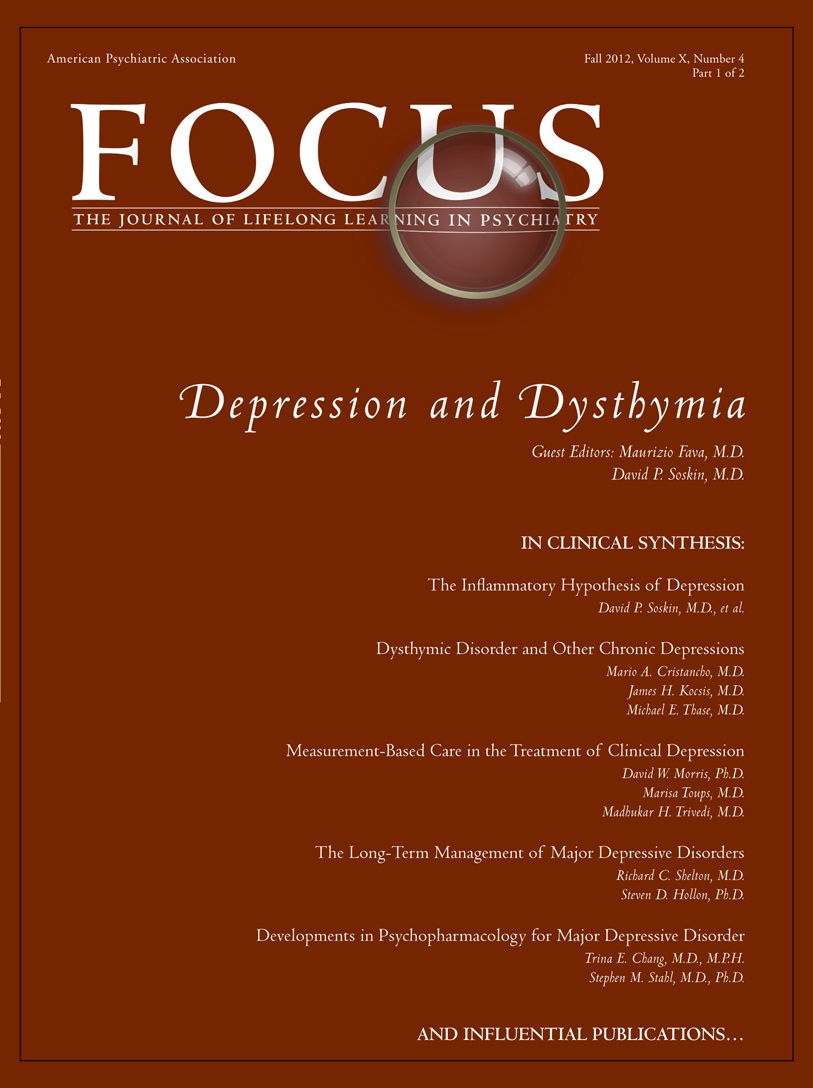Dysthymic Disorder and Other Chronic Depressions
Abstract
Chronic forms of depression have been closely studied over the last three decades, and it is now widely recognized that these conditions are better classified under the umbrella of affective disorders rather than characterological or personality disorders. Chronic depressive disorders include dysthymic disorder, chronic major depressive episode, major depressive episode superimposed on dysthymic disorder (double depression), as well as recurrent major depressive disorder without full interepisode recovery. Chronic forms of depression are prevalent in the general population, and even those with low grade severity can lead to significant functional impairment, occupational dysfunction, suicide attempts, and worse prognosis. Given the obvious potential for deleterious effects, chronic forms of depression should be promptly recognized and aggressively treated. Clinical benefit from using psychopharmacologic agents alone or in combination with psychotherapy for the treatment of chronic depression has been demonstrated. In this article the authors review pertinent clinical and diagnostic aspects in chronic depressive disorders as well as their treatment.



